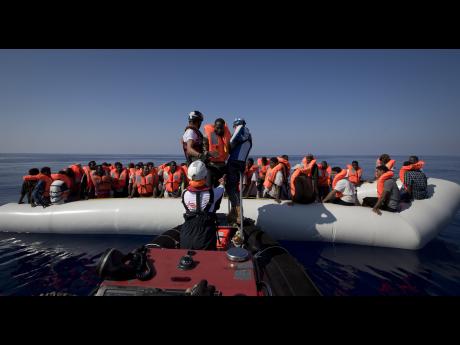Summit yields new approach to asylum claims
PARIS (AP):
The leaders of France, Germany, Italy, and Spain agreed yesterday on a new policy to grant asylum to vulnerable migrants who apply for protection while in Africa instead of their destination countries.
At a Europe-Africa summit in Paris aimed at finding long-elusive solutions to illegal migration, the European leaders also agreed to help the African countries through which Europe-bound migrants usually pass with border controls.
French President Emmanuel Macron, the summit's host, called it the most effective and far-reaching migration meeting in months, though he didn't say how much the new measures would cost and many specifics remained unclear.
In a joint statement, the four leaders acknowledged the need to initiate a process in Chad and Niger that would lead to the resettlement of "particularly vulnerable migrants" in Europe.
They announced the plan to carry out "protection missions" in the African nations in cooperation with the United Nations' refugee and migration agencies.
The process would allow migrants to immigrate legally to Europe if they are on an eligibility list provided by the UN refugee agency and registered with authorities in Niger and Chad.
The pre-asylum centres would receive European financing, according to a top French diplomat. The official, in keeping with French presidential policy, requested anonymity and would not provide details on the precise locations and procedures for the missions.
German Chancellor Angela Merkel said that European countries must clearly define which asylum-seekers have legitimate humanitarian needs and who is fleeing poverty. She called it "very, very important" that the possibility of resettlement is coupled "with an end to illegal migration."

